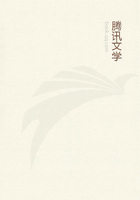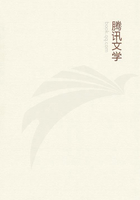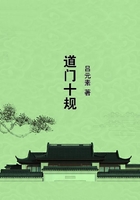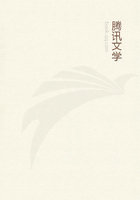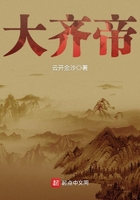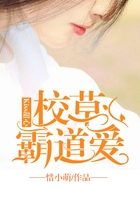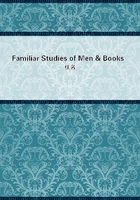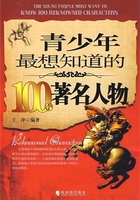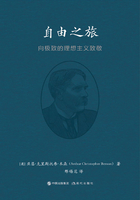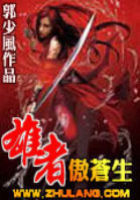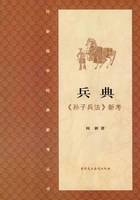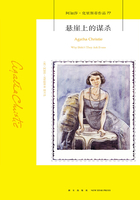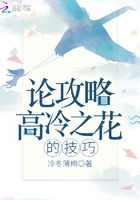There was a time when he decided to go away and hide. He even planned all that was necessary for that purpose. He prepared for himself a peasant's shirt, trousers, coat, and cap. He explained that he wanted these to give to those who asked. And he kept these clothes in his cell, planning how he would put them on, cut his hair short, and go away. First he would go some three hundred versts by train, then he would leave the train and walk from village to village. He asked an old man who had been a soldier how he tramped: what people gave him, and what shelter they allowed him. The soldier told him where people were most charitable, and where they would take a wanderer in for the night, and Father Sergius intended to avail himself of this information. He even put on those clothes one night in his desire to go, but he could not decide what was best--to remain or to escape. At first he was in doubt, but afterwards this indecision passed. He submitted to custom and yielded to the devil, and only the peasant garb reminded him of the thought and feeling he had had.
Every day more and more people flocked to him and less and less time was left him for prayer and for renewing his spiritual strength. Sometimes in lucid moments he thought he was like a place where there had once been a spring. 'There used to be a feeble spring of living water which flowed quietly from me and through me. That was true life, the time when she tempted me!'
(He always thought with ecstasy of that night and of her who was now Mother Agnes.) She had tasted of that pure water, but since then there had not been time for it to collect before thirsty people came crowding in and pushing one another aside. And they had trampled everything down and nothing was left but mud.
So he thought in rare moments of lucidity, but his usual state of mind was one of weariness and a tender pity for himself because of that weariness.
It was in spring, on the eve of the mid-Pentecostal feast.
Father Sergius was officiating at the Vigil Service in his hermitage church, where the congregation was as large as the little church could hold--about twenty people. They were all well-to-do proprietors or merchants. Father Sergius admitted anyone, but a selection was made by the monk in attendance and by an assistant who was sent to the hermitage every day from the monastery. A crowd of some eighty people--pilgrims and peasants, and especially peasant-women--stood outside waiting for Father Sergius to come out and bless them. Meanwhile he conducted the service, but at the point at which he went out to the tomb of his predecessor, he staggered and would have fallen had he not been caught by a merchant standing behind him and by the monk acting as deacon.
'What is the matter, Father Sergius? Dear man! O Lord!' exclaimed the women. 'He is as white as a sheet!'
But Father Sergius recovered immediately, and though very pale, he waved the merchant and the deacon aside and continued to chant the service.
Father Seraphim, the deacon, the acolytes, and Sofya Ivanovna, a lady who always lived near the hermitage and tended Father Sergius, begged him to bring the service to an end.
'No, there's nothing the matter,' said Father Sergius, slightly smiling from beneath his moustache and continuing the service.
'Yes, that is the way the Saints behave!' thought he.
'A holy man--an angel of God!' he heard just then the voice of Sofya Ivanovna behind him, and also of the merchant who had supported him. He did not heed their entreaties, but went on with the service. Again crowding together they all made their way by the narrow passages back into the little church, and there, though abbreviating it slightly, Father Sergius completed vespers.
Immediately after the service Father Sergius, having pronounced the benediction on those present, went over to the bench under the elm tree at the entrance to the cave. He wished to rest and breathe the fresh air--he felt in need of it. But as soon as he left the church the crowd of people rushed to him soliciting his blessing, his advice, and his help. There were pilgrims who constantly tramped from one holy place to another and from one starets to another, and were always entranced by every shrine and every starets. Father Sergius knew this common, cold, conventional, and most irreligious type. There were pilgrims, for the most part discharged soldiers, unaccustomed to a settled life, poverty-stricken, and many of them drunken old men, who tramped from monastery to monastery merely to be fed. And there were rough peasants and peasant-women who had come with their selfish requirements, seeking cures or to have doubts about quite practical affairs solved for them: about marrying off a daughter, or hiring a shop, or buying a bit of land, or how to atone for having overlaid a child or having an illegitimate one.
All this was an old story and not in the least interesting to him. He knew he would hear nothing new from these folk, that they would arouse no religious emotion in him; but he liked to see the crowd to which his blessing and advice was necessary and precious, so while that crowd oppressed him it also pleased him.
Father Seraphim began to drive them away, saying that Father Sergius was tired.
But Father Sergius, remembering the words of the Gospel: 'Forbid them' (children) 'not to come unto me,' and feeling tenderly towards himself at this recollection, said they should be allowed to approach.
He rose, went to the railing beyond which the crowd had gathered, and began blessing them and answering their questions, but in a voice so weak that he was touched with pity for himself. Yet despite his wish to receive them all he could not do it. Things again grew dark before his eyes, and he staggered and grasped the railings. He felt a rush of blood to his head and first went pale and then suddenly flushed.
'I must leave the rest till to-morrow. I cannot do more to-day,' and, pronouncing a general benediction, he returned to the bench.

